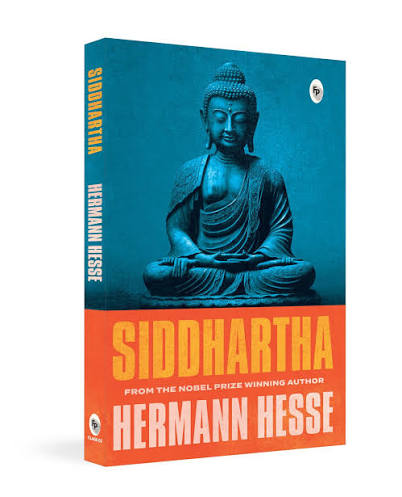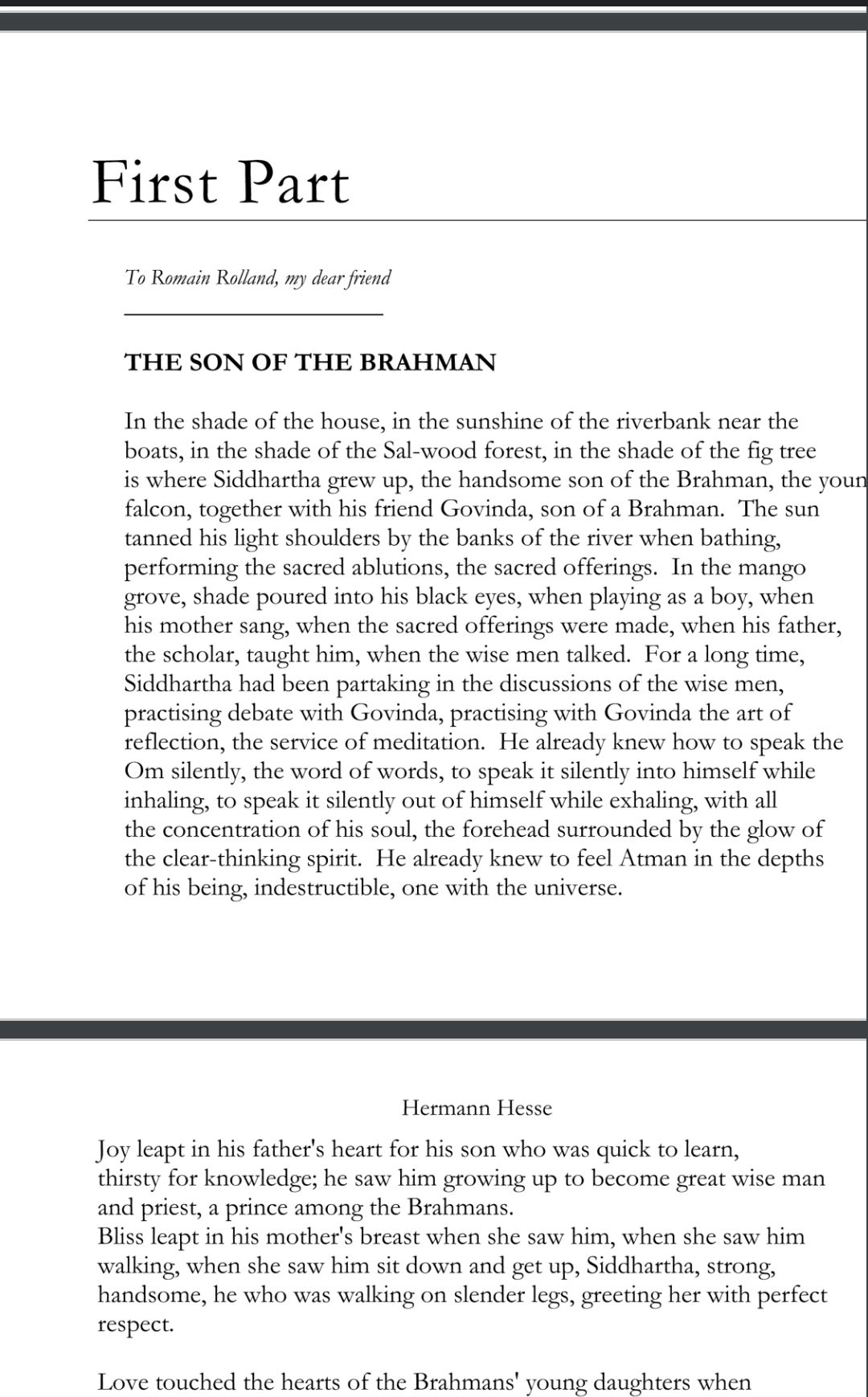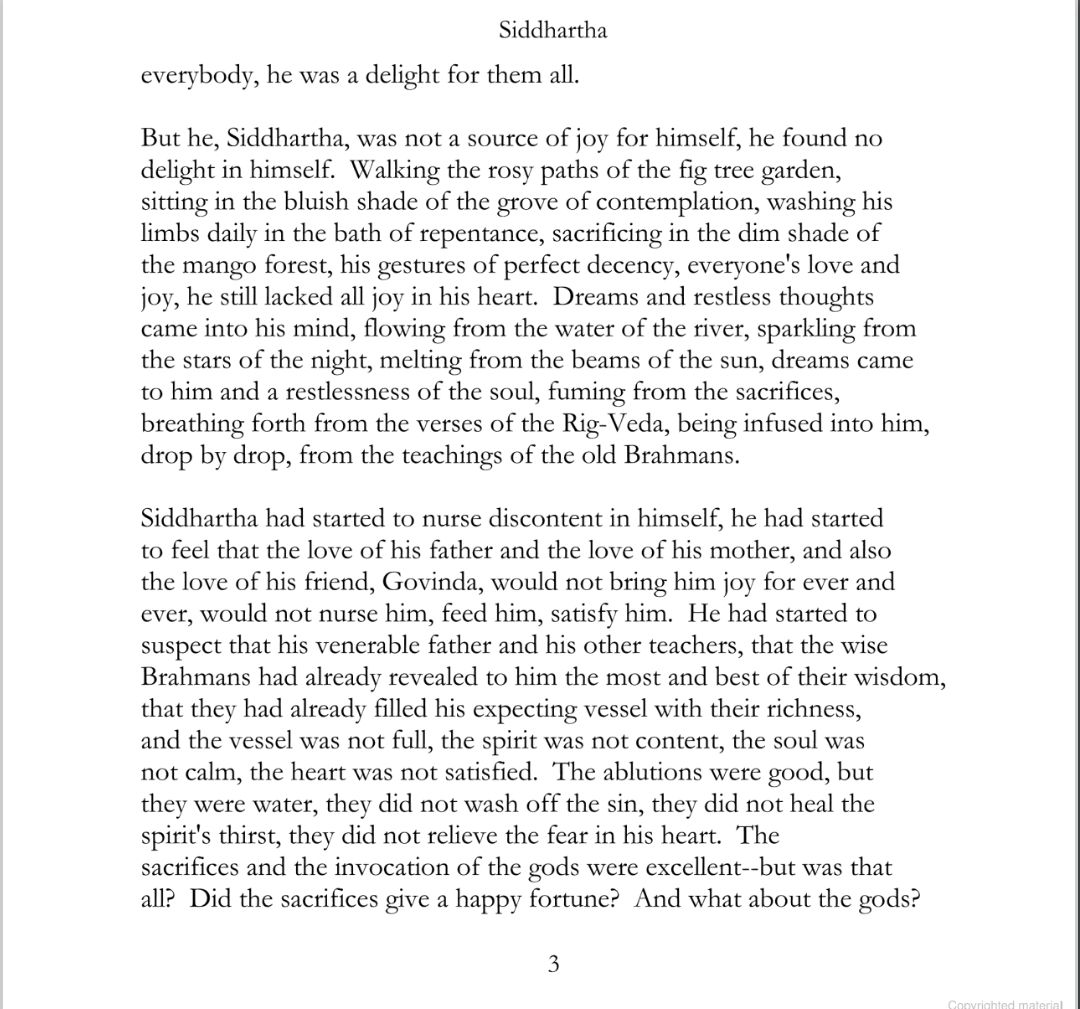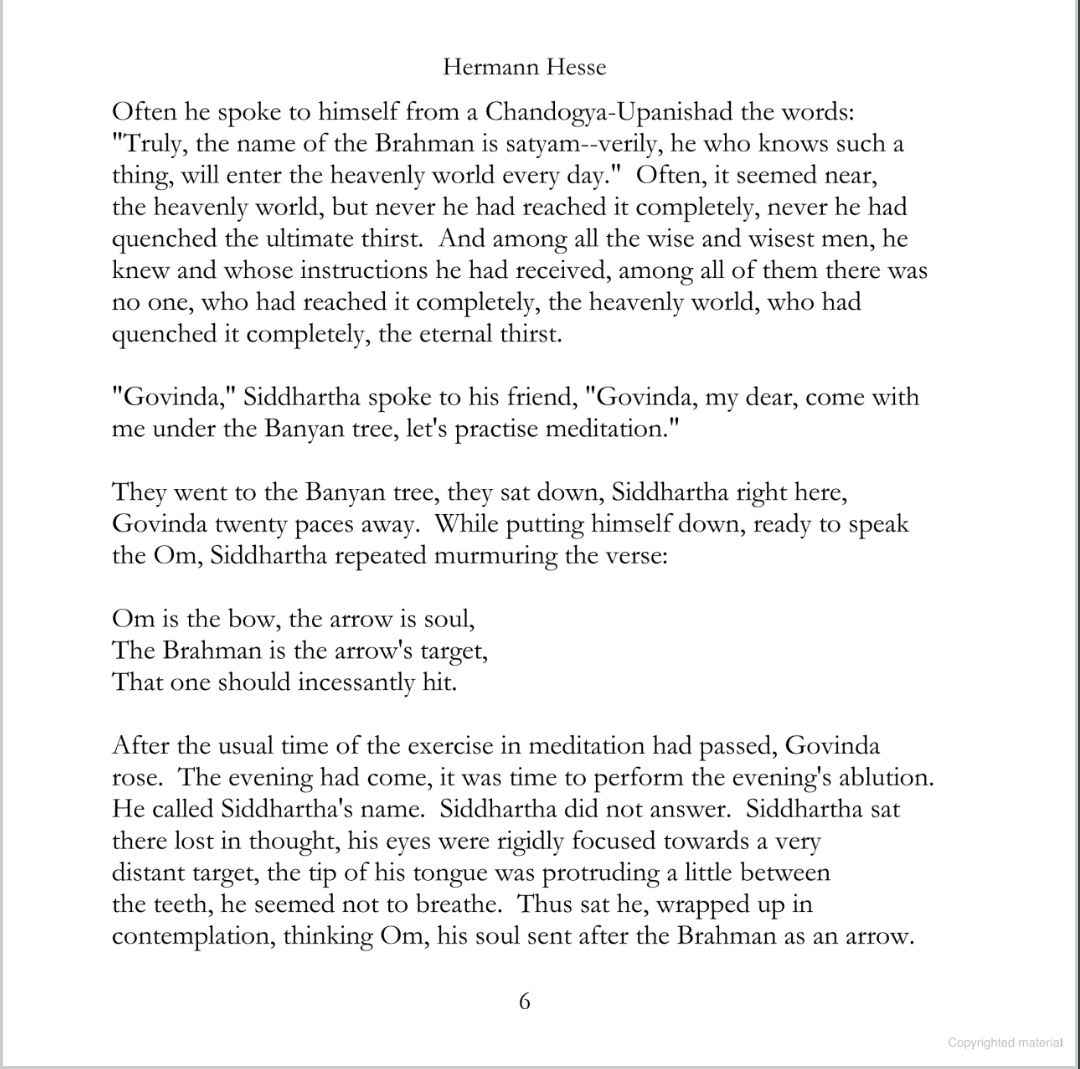
Siddhartha: An Indian novel is a 1922 novel by Hermann Hesse that deals with the spiritual journey of self-discovery of a man named Siddhartha during the time of Gautama Buddha.
Sometimes reading a book is like it’s teaching you something about yourself even when you’re not ready to admit it? That’s exactly what happened to me with Siddhartha by Hermann Hesse. When I picked it up, I thought it was just another old philosophical novel people hype up. But honestly? It felt like a mirror. A mirror to every restless thought, every moment I’ve wanted more from life but didn’t even know what I was chasing. Reading it wasn’t smooth—it was uncomfortable, enlightening, and deeply personal.

The story follows Siddhartha, a young man in ancient India who basically has everything laid out for him. He’s smart, disciplined, respected, even admired. Everyone expects him to become this shining example of a wise Brahmin, but deep down, he feels this emptiness. That struck me so hard—because haven’t we all had that? When on paper, everything looks perfect, yet inside you feel this gnawing hunger, this itch that says, there has to be more. That’s where Siddhartha begins. He’s restless, dissatisfied, unwilling to settle for secondhand wisdom.
So he leaves home. Like that--turns his back on the safe, privileged life everybody would die to get. He enters the life of the ascetics, the Samanas, who are severe and self-denying, and lead their lives in the woods. Killing themselves, pledging, attempting to divest themselves of all secular passions. And actually, Siddhartha plunges into it. He is strong-willed, fierce and to be honest, I liked the boldness he had. However, the longer he remains, the more he discovers that even in renunciation, he is not discovering the greater truth he desires. It’s like switching cages. A gilded, a naked, yet a cage.

Then there is one of the most crucial sections: he encounters the Buddha, Gautama himself. You see--suppose you were there, having him face to face, and the man that everyone in the world loves and admires is looking at you, and exuding peace and light. Govinda, a close friend of Siddhartha, immediately desires to accompany him and become his disciple. But Siddhartha? He respects the Buddha and has a great deal of admiration, but there is something within his heart that does not like this. I can admire the way of the man, he says to himself, but I cannot take a second-hand stroll. I need my own.
I got a goosebump at that moment. The reason behind that is that it is so easy to follow the script of someone else- your parents, your mentors, even your spiritual leaders. But Siddhartha will risk and say, No, my truth must be mine. Such self-truth was dreadful and freeing.

And then he takes his trip on the wild side. He abandons the spiritual way and plunges into the world of delights. He encounters Kamala, a lovely courtesan who educates him about love, desire, and the art of indulgence. Suddenly, Siddhartha is leading an entirely new life, rich, luxurious, gambling, sex, and all. Initially, it is intoxicating. He is enjoying the sweetness of the world after depriving himself of so much. But the thing is--it is beginning to rot him inwards.
Little by little he finds himself empty once again, with the weight of greed, lust, and boredom upon him. And I heard that prick because it is so actual. How many times have we pursued the pleasure, thinking that it would fill the emptiness, only to realize that we are emptier than we used to be?
The moment that broke me was the moment when Siddhartha finally woke up out of this life of excess. He examines himself in disgust and sees that he has spent years of his life chasing shadows. The collapse at that moment, when he is on the brink of depression, even considering taking his own life, was so excruciatingly human. Since there are occasions when we have to go to rock bottom before we can finally peel away the lies that we have been living in.
And then, the river. Oh, the river. This turns out to be the pulse of the book. Siddhartha encounters the simple ferryman called Vasudeva, who guides him to listen, not with his ears, but with his soul. The river is not only water but everything. Its unending stream, its oneness of origins and terminations, its silence--it has truths that Siddhartha had been in quest of his entire life. And when he sits there, and is really listening, he hears the voices of all the world in it. That was the most touching part to me, since it was not about giving up life or living it to the fullest, it was just knowing life like it is. The river does not cling, it does not judge, it is flowing. The picture continues to haunt me when I am lost.
And the final twist--his reconciliation to his own son. Siddhartha, who had once revolted against his father, now finds himself in the role of the father. His son rejects, despises, and leaves him. Bringing such torment to his child--it was atrocious to see him endure that pain of never knowing how to rest--was as cruel as murder. That helpless love, that acceptance of loss, made me choke up. Because that’s life, isn’t it? We can guide, we can love, but we can’t live anyone else’s journey.
At the conclusion, Siddhartha is not a saint in the customary sense. He does not become a member of a religion or scriptures. He just is. Seated by the river, calm, exuding a silence of wisdom that is not speech but action. Govinda returns to him, and in a single moment when he kisses the forehead of Siddhartha, he realizes that enlightenment, not as the abstract concept, but as something lived through in his face. I chilled at that final scene. Since it was not fireworks, it was not dramatic, it was serene. The type of peace to murmur, not to scream.
The best thing about it, however, was not the story itself, but the fact that it was so crude when compared to my own life. How frequently do we ride a pendulum back and forth like Siddhartha, between discipline and indulgence, between extremes and extremes, and then discover that neither in another man’s teaching nor in the next adventure is peace, but is rather in the simple acceptance of things as they are? It taught me to face my restlessness, my own inclination to believe that happiness is right up the street.
Siddhartha was not a book I was reading, but a conversation I was having with my own soul and it was great and lengthy and painful and lovely all at the same time. And it made me remember that the answers were not somewhere out there in some far-off goal or guru, but in listening, listening to yourself, listening to the world, listening to the river, that was within us all. It is not a book that you read and forget. Meanwhile, it stays, it speaks, it tests you. That is why, in my case, it was not only literature, but it was some kind of experience I will bear, most likely throughout my life.